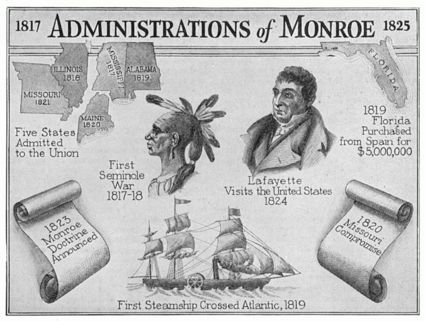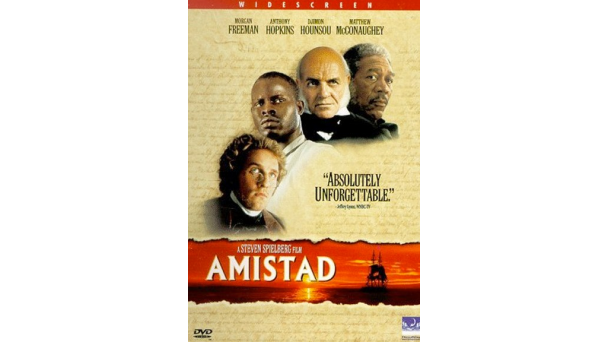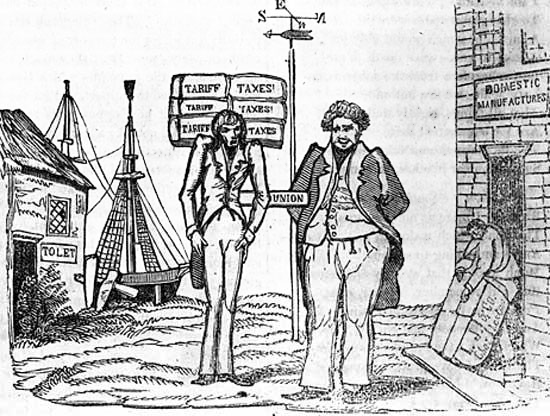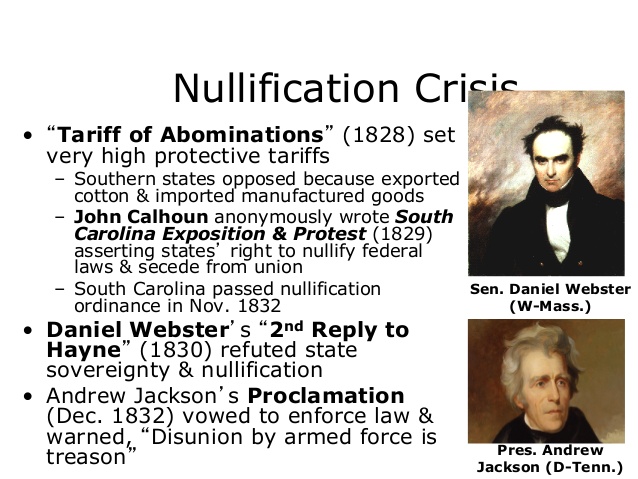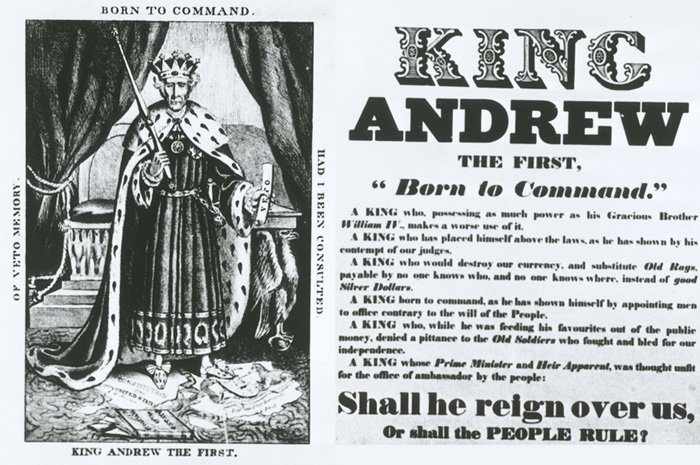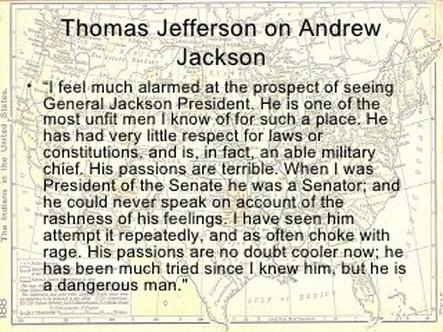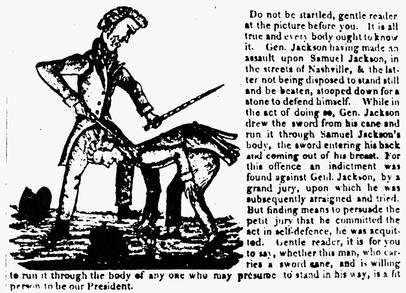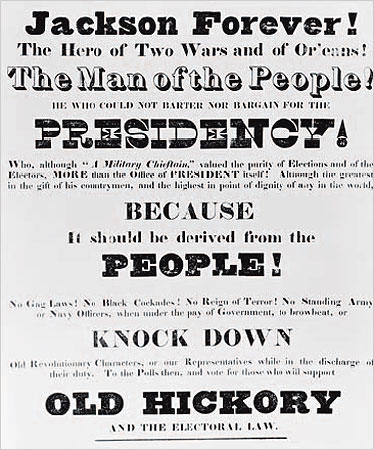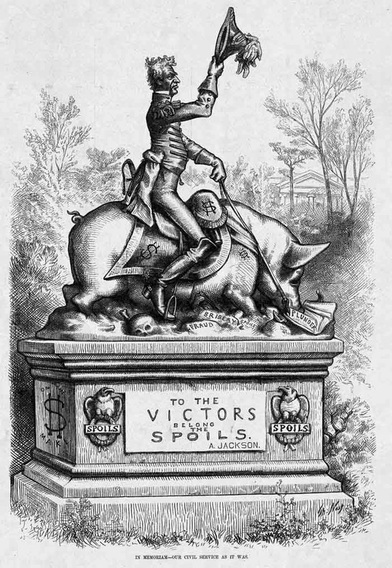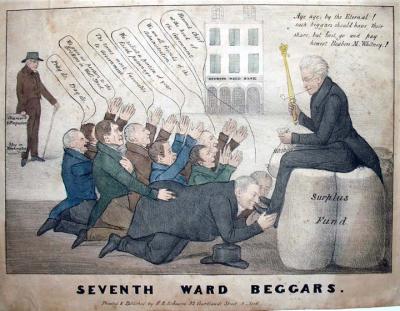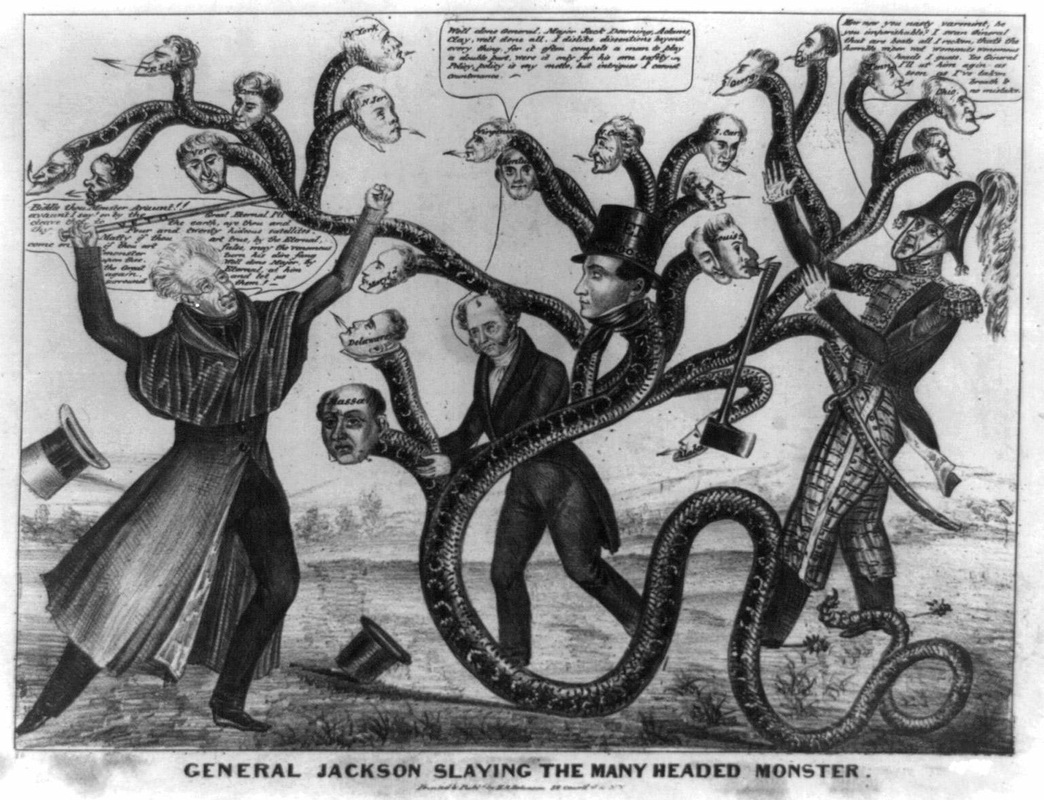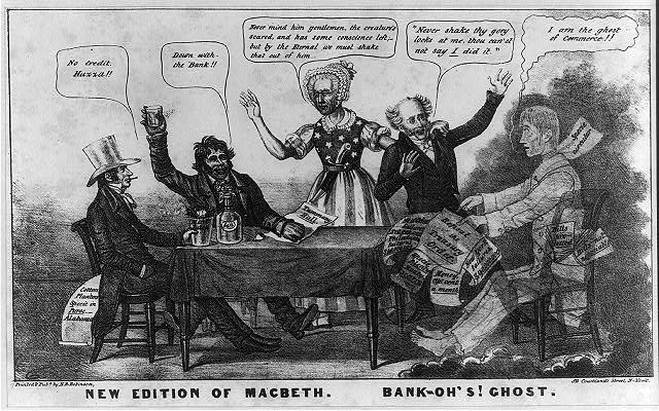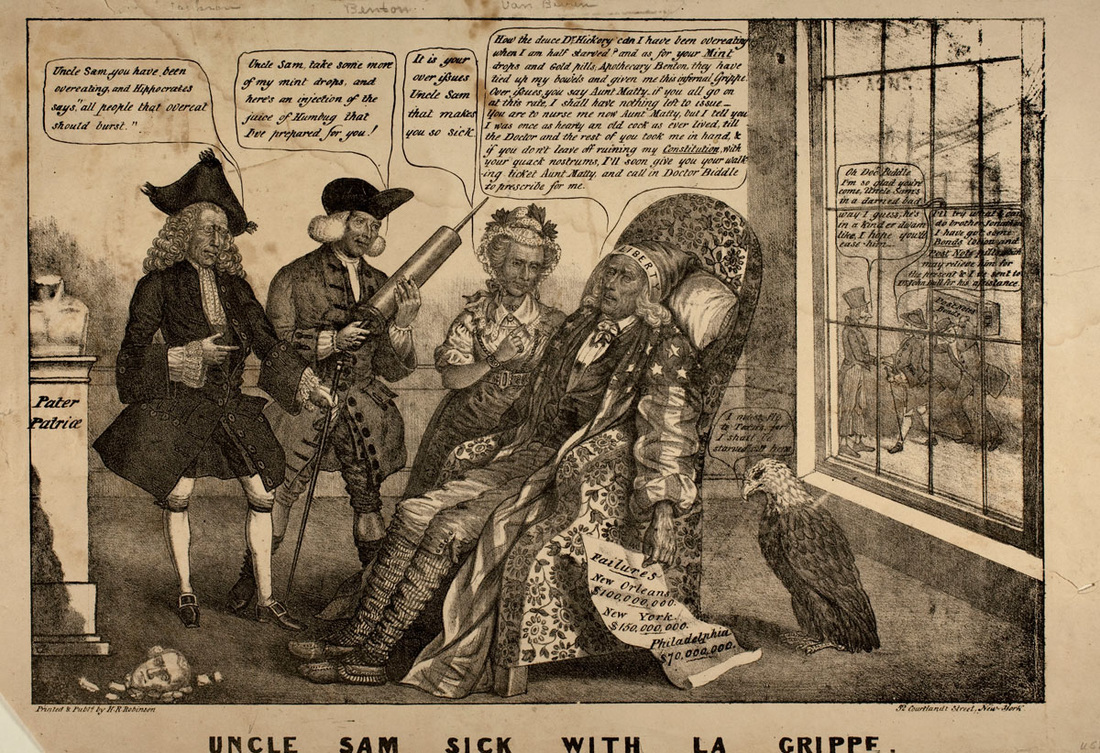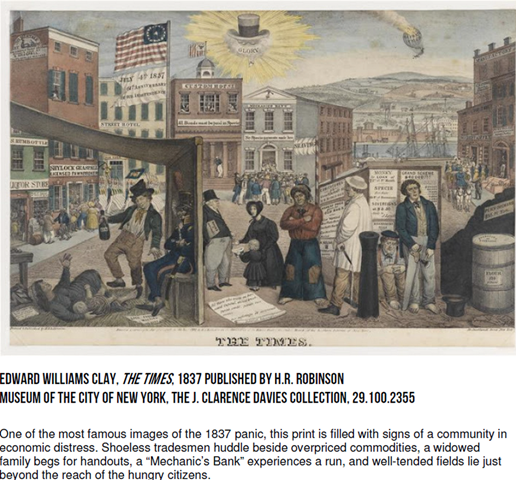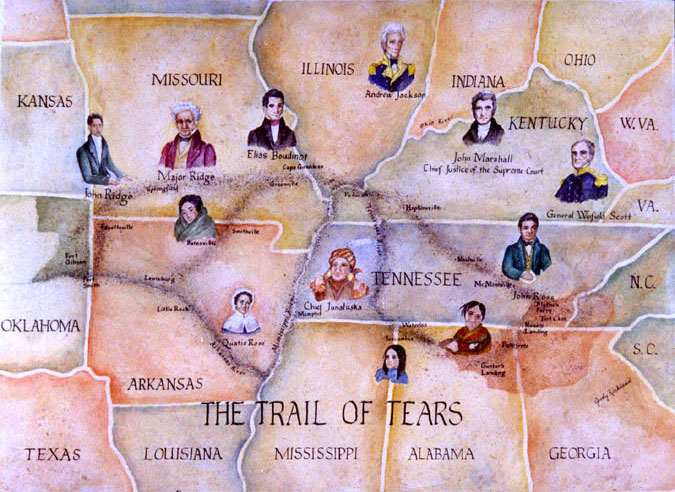Chapter 11: The Jackson Era
Class 1 – Dirty Politics and the Two Party System
- Read the Extended Overview sections of your curriculum through the section on the Tariff of Abominations.
- The Era of Good Feelings – APUSH Review: The Era of Good Feelings ; The Era of Good Feelings and the Two-Party System
- Henry Clay, the "Great Compromiser" – Henry Clay and the American System (6 min); Clay vs. Jackson (15 min)
- The 1824 Election – The 1824 Election and the "Corrupt Bargain" ; Corrupt Bargain of 1824 (2 min) ; The Election of 1824 (10 min)
Class 2 – John Quincy Adams
- President John Quincy Adams Biography [odd facts] (4 min); John Quincy Adams Bio [article and video] (5 min); John Quincy Adams
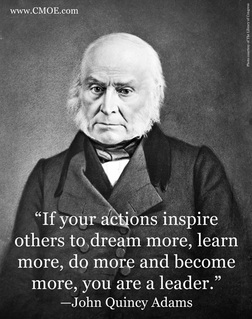
Always vote for principle, though you may vote alone, and you may cherish the sweetest reflection that your vote is never lost.
~ John Quincy Adams ~~
~ John Quincy Adams ~~
- Adams as a Social Crusader -- Amistad (2.5 hrs) [watch half this class and half the next]
Class 5 – Andrew Jackson
- Overview -- The Age of Jackson (15 min)
- Andrew Jackson Biography [article and videos] (13 min)
Class 6 – Andrew Jackson -- The Hero of the Common Man
Class 7 – Andrew Jackson and the Economy
- Second Bank of the US ; The American System: The 2nd Bank of the U.S (15 min) ; Jackson Bank Wars (4 min)
|
Seventh Ward Beggars
Posted by Julie L. Mellby on March 16, 2010 This print shows Andrew Jackson (1767-1845), the seventh president of the United States, sitting on the government’s surplus funds, holding a bag of $100,000. Jackson had succeeded in destroying the Bank of the United States in 1832. He and his “kitchen” cabinet established a series of pet banks—state institutions used by the federal government as depositories for public funds. One such pet bank was the Seventh Ward Bank, seen in the back center, which was established in 1833. Jackson had the power to distribute bank funds and in this print we see nine bankers begging for money, two are literally kissing his feet. Jackson tells them to first pay honest Rueben M. Whitney, a former director of the Bank of United States, now working for Jackson. In the back left stands a Courier Enquirer reporter who later opened an investigation into the bonus fund money used to pay off Whitney. The beggars say, “Revered Chief at the head of the Government - We are all friends of the Administration - We solicit a portion of your fiscal patronage - The terms most favorable to Government - We gave no portion to the Brokers in Wall Street - Pray do, Pray do.” |
New Edition of MacBeth. Bank-oh's! Ghost
Summary: Another satire on the Panic of 1837, again condemning Van Buren's continuation of predecessor Andrew Jackson's hard-money policies as the source of the crisis. Clay shows the president haunted by the ghost of Commerce, which is seated at the far right end of a table which he shares with a southern planter (far left) and a New York City Tammany Democrat. Commerce has been strangled by the Specie Circular, an extremely unpopular order issued by the Jackson administration in December 1836, requiring collectors of public revenues to accept only gold or silver (i.e., "specie") in payment for public lands. The ghost displays a sheaf of papers, including one marked "Repeal of the Specie Circular," and notices of bank failures in New Orleans, Philadelphia, and New York. Van Buren recoils at the sight of the specter, exclaiming, "Never shake thy gory locks at me, thou can'st not say I did it." Jackson, in a bonnet and dress made of bunting, turns away saying, "Never mind him gentlemen, the creature's scared, and has some conscience left; but by the Eternal we must shake that out of him." Planter (a note reading "Cotton Planters Specie in "Purse." Alabama" protrudes from his pocket): "No credit. Huzza!!" Tammany Irishman (raising a glass): "Down with the Bank!!" |
|
http://www.common-place.org/vol-10/no-03/lepler In Clay's image, a sick Uncle Sam (dressed in moccasins and a liberty cap and holding a sheet of paper listing the dollar amounts of failures in New York, New Orleans, and Philadelphia) is tended to by a variety of medical practitioners attired in eighteenth-century styles but displaying the visages of contemporary Democratic Party politicians. Jackson diagnoses the illness as "overeating," a reference to American "overconsumption" of imports. Through an oversize syringe, Thomas Hart Benton, the leader of the Hard Money Democrats, administers his "gold pills" and "mint drops" as a cure. Dressed like an eighteenth-century nurse, "Aunt Matty," a nickname crafted by Davy Crockett for the refined and diminutive Van Buren, blames Uncle Sam's sickness on "over issues"—a reference to the increased number of bank notes. Uncle Sam takes issue with "Dr. Hickory" and insists that he is not a glutton but "half starved." He blames "Apothecary Benton" for "tying up my bowels" and reminds his nurse that he was once "as hearty an old cock as every lived." Outside the sickroom, Biddle arrives with his own set of remedies—a variety of paper money—and is greeted by a desperate Brother Jonathan, a symbol of America's English creditors. To avoid starvation, the bald eagle suggests flying to the Republic of Texas, a popular location for absconding from debts. The cartoon argues that the Democrats' attempts to restructure American finance nearly killed the country. The individual experience of panic is nationalized and embodied in the character of Uncle Sam
|
Classes 8 and 9 – Andrew Jackson and the Extermination of Native Peoples
- The Indian Removal Act (5 min) ; Indian Treaties and the Removal Act of 1830
- Worcester vs Georgia Case
- We Shall Remain - Trail of Tears (1 hr 10 min)
- Florida Becomes a State -- The Seminole Wars ; Forgotten Rebellion: Black Seminoles and the Largest Slave Revolt in U.S. History (10 min)
Classes 10 and 11 – Andrew Jackson and His Legacy
|
|
Note: Some adult language. Use your discretion.
|
Classes 12 – The Presidency of Van Buren
- Martin Van Buren Biography [article and videos] (5 min)
- Martin Van Buren song
- American President #8: Martin Van Buren (1837-1841) (8 min); Martin Van Buren: the "OK" President (2 min) ; Martin Van Buren’s legacy: Expert politician, mediocre president
- The collapse of the economy precipitated by the Jackson/Van Buren administration occured merely a week after Van Buren was sworn in . The severity of the crisis was exascerbated by poor harvests, declining western expansion (due to the inability of settlers to afford land), national debt after the Louisiana Purchase, and runaway inflation caused by banks printing worthless currency. The Whig Party, which had formed under Henry Clay to challenge Jackson, sucessfully launched a candidate to challenge Van Buren's rebid for office. In the election of 1840, William Henry Harrison, an Indian War hero nicknamed "Tippecanoe" after the location of one of hid battle victories, soundly defeated Van Buren in his bid for reelection. This revived the 2 party system and set the stage for our current political practices.
- The Whig Party
